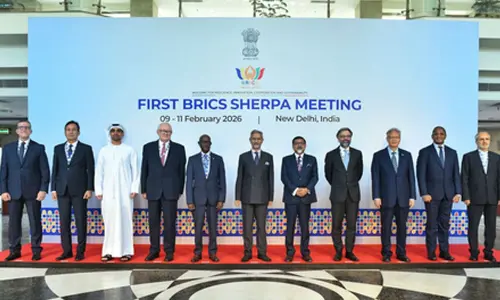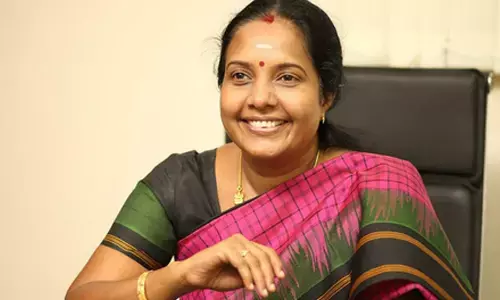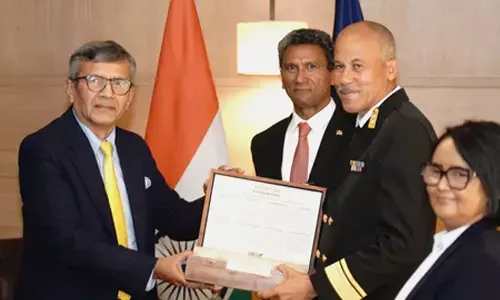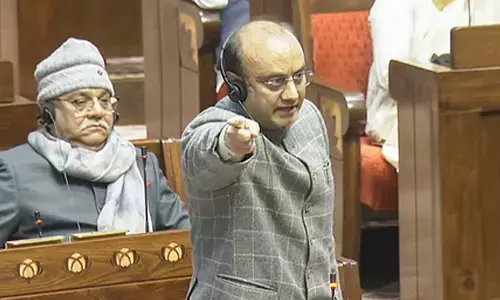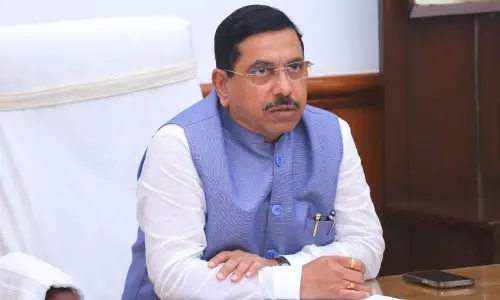Different contexts, Different solutions
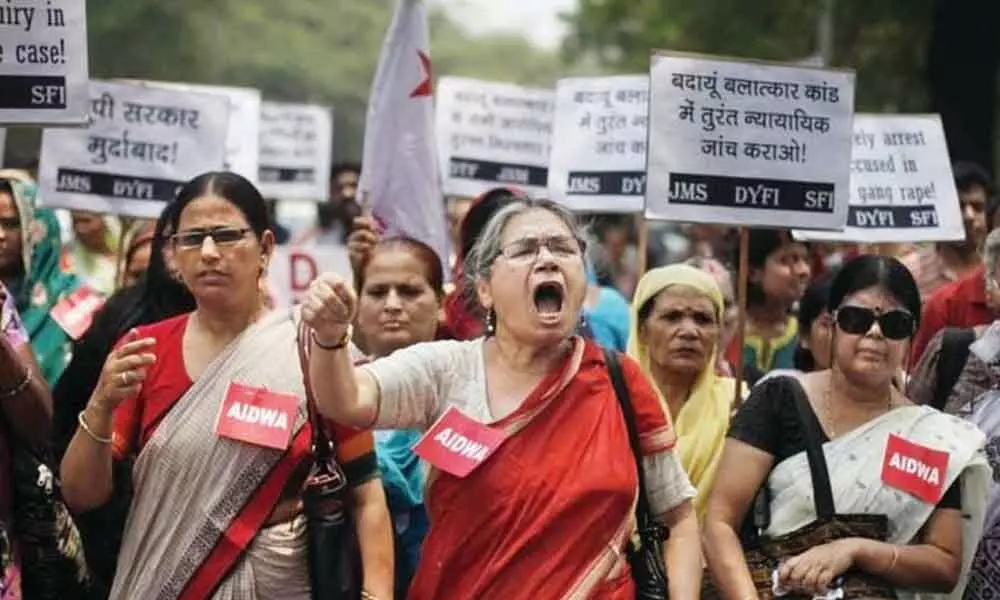
Different contexts, Different solutions
India is large, diverse, and unequal. The stories of feminism are likewise different. It is perhaps the second wave of global feminism which found resonance with some contemporary Indian issues like land rights, political representation, divorce laws, custody, guardianship, sexual harassment at work, alcoholism, dowry, and rape.
India is large, diverse, and unequal. The stories of feminism are likewise different. It is perhaps the second wave of global feminism which found resonance with some contemporary Indian issues like land rights, political representation, divorce laws, custody, guardianship, sexual harassment at work, alcoholism, dowry, and rape. There are gender issues in India, some very severe, and they need correction but through our own solutions
India joins the world in celebrating The International Women's Day on March 8 with enthusiasm and fervour. A happy women's Day to all the lovely women of the world who are doing a great job in a still inequal world at many levels- including gender, as professionals, politicians, bureaucrats, artists, and so on. One is almost scared to wish them well as mothers, daughters, and home-makers (spouses if I dare say) in increasingly strident narratives of challenges, equality, and patriarchy.
Nowhere is the disconnectedness and inappropriateness of western philosophies to Indian issues starker than in feminism. Western feminism took the form of waves; the first wave and second wave achieved a huge victory in terms of voting rights, political participation, equal pay, and emancipation of women. In this demand for political, cultural, educational, and economic equality, feminism took various forms like liberal feminism, Marxist feminism, and radical feminism. However, the subsequent approach leads to a confrontation with strong narratives today of 'patriarchy'; 'toxic masculinity'; and a general distrust of the males and the institute of marriage.
However, thinkers using western frameworks to define Indian gender issues do not realise that many familial, societal, cultural, marital, and economic factors apart from individual consciousness condition women issues. Indian feminists taking western theories simply washout the divine component of women in Indian scheme of things. The huge number of goddesses and Shakti traditions simply disappears from their understanding of Indian culture. The explanation of Goddess worship as a part of patriarchal and casteist practices, masked as 'respect for women', simply undermines the entire civilisational heritage of the country.
India's huge body of texts and traditions were always about Dharma, rights, harmony, and women working as equals in maintaining the family and society (Sahayogini and a Sahakarmini forming a unit of Dampati). Indian ideas of Ardhanareeshwar (man-Shiva and women-Shakti representing two aspects of one person); women in bhakti traditions achieving gender equality and equal respect; women protesting patriarchy, kings, caste divides, oppressive social norms; hundreds of inspiring women in history and literature do not figure in discussions of Indian feminism. As one author Jasbir Jain says, 'Draupadi deconstructed the notions of chastity and sati; Sita, of power and motherhood; Kali, of violence; Puru's young wife, of sexuality; the bhakta women, of marriage and prayer.'
The utilitarianism approach of gender equality in the West finally lost the understanding of the exclusive value that birthing, motherhood and lactating bring to women. A biological function became a matter of rights which is extremely confusing in the Indian context. This is not to suggest that everything is great about Indian women with regards to their educational, political, social, or economical rights and respect, but the issues and solutions are simply different.
The low respect for women voicing out choices in lower socio-economic classes and the struggle of an urban woman in balancing work and home leads to the belief that Hindu texts are extremely misogynistic. As is usual with many narratives, an association with traditions becomes the cause of social problems. Some Indian scholars feel that western feminism when applied to the Indian culture leads to anti-Hinduism instead of anti-misogyny. Political and demographical hijacking of feminism by West- funded NGO activism is primarily responsible for it.
The Sabarimala temple entry issue exemplified how traditional belief systems became a set of ideas related to gender discrimination – a direct influence of global feminism. The ridicule of 'patriarchy' and 'regressive nature' constantly sticks to many Indian festivals and customs. As the later waves spill over to India, the themes of both father and mother as evils, Mangalasutra and sindoor as regressive symbols, and deeply patriarchal social systems tries to unsettle the Hindu family and the marriage system. Many Indian feminists have an acute sense of discomfort as postcolonial theories related to feminism addresses the need of western academia. One Indian scholar says that what counts as 'marginal' in relation to the West has often been central and foundational in the non-West.
India is large, diverse, and unequal. The stories of feminism are likewise different. It is perhaps the second wave of global feminism which found resonance with some contemporary Indian issues like land rights, political representation, divorce laws, custody, guardianship, sexual harassment at work, alcoholism, dowry, and rape. There are gender issues in India, some very severe, and they need correction but through our own solutions.
Feminism is a modern expansionist creation of the West based on the ideas of 'everything patriarchal' themes, the disparate natures of men and women, and liberal secularism. Transposing it to Indian culture finally hits out at our traditional society. Like for multiculturalism, India perhaps has better solutions for the world which seeks harmony, deifies women, and asks women to be just women, true to their physical, mental, and intellectual natures.


